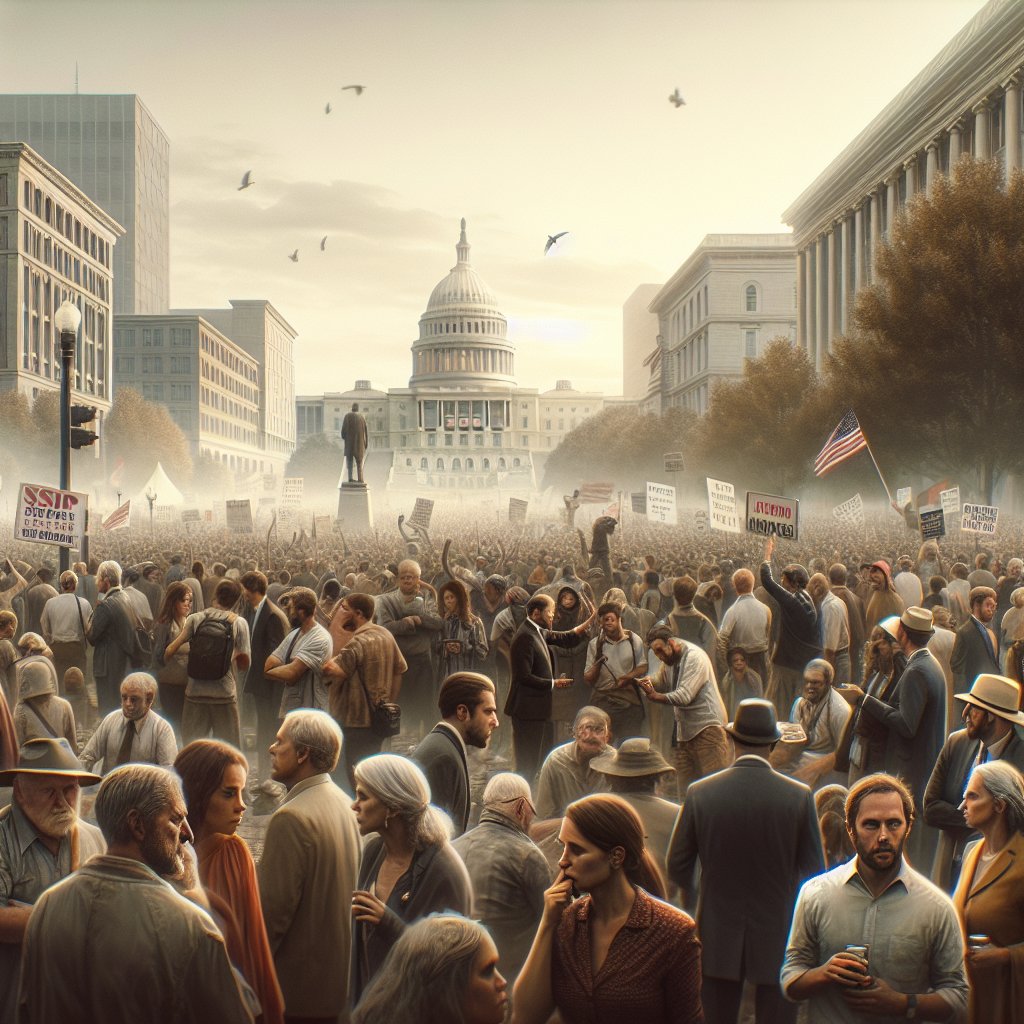Content created by AI
DRC Government Crackdown on Opposition Protests Amidst Controversial Election
In a move that has heightened political tensions within the Democratic Republic of Congo (DRC), the government has officially prohibited an opposition-led protest that was scheduled to occur in the nation's capital of Kinshasa. This development came against the backdrop of a tumultuous national election, held on December 20, which has been marred by allegations of irregularities and operational mishaps.
The protest was jointly called for by five opposition presidential hopefuls to express their discontent with the voting process and the emerging early results that put incumbent President Felix Tshisekedi in the lead for a second term.
However, this call for public demonstration was swiftly quashed by government officials, who argued that the protest lacked a legal foundation and, further, that it was intended to disrupt the ongoing work of the national election commission, CENI, in tallying votes. Vice Prime Minister Peter Kazadi was quoted as saying, "No government in the world can accept this, so we will not let it happen," during a press conference held on Tuesday, vividly illustrating the government's stance on the issue.
The controversial decision to ban the protest risks amplifying the already simmering tension in a country that frequently experiences election-driven violence. These disputes threaten to further the instability in the country, which, despite its incredible resource wealth in minerals such as cobalt and copper, struggles with pervasive poverty and insecurity, particularly within its eastern provinces.
The path to the election has been anything but smooth, with campaigners facing violence and voters grappling with logistical nightmares including the delayed arrival of election kits, malfunctioning voting systems, and poorly managed voting registers. These operational problems have exacerbated concerns regarding the authenticity and validity of the election outcomes.
In an extraordinary response to some polling stations failing to open on election day, the CENI extended the voting period, a decision that was categorically refused by the protesting groups, who have demanded a complete re-run of the vote. Their stance echoes concerns shared by some independent monitoring bodies about the fairness of the election.
As the CENI began releasing preliminary results indicating President Tshisekedi's lead with an approximate 80% of the 2.8 million votes counted, questions regarding the overall turnout and the representative nature of the disclosed figures remain unanswered. These undetailed results have done little to subside the growing unease over the entire electoral process.
Adding a significant voice to the outcry, presidential candidate Moise Katumbi has highlighted the necessity for the CENI leadership, particularly its head, to resign, emphasizing his support for the aggrieved protest organizers. His sentiment is reflective of broader public concern over the transparency and integrity of the Congolese electoral mechanism.
As deadlock persists between the government's standpoint and the adamant opposition, the unfolding events in the DRC will be watched closely by both national and international observers. The outcome of this electoral period—not just in terms of who assumes or retains power, but also in how democratic processes are managed—will be considered indicative of the future political trajectory the country may take.










